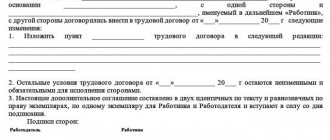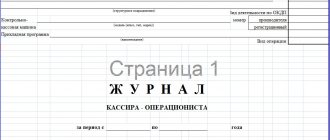Who is the Attorney General?
The Prosecutor General is an official representing the highest body in the Russian prosecutor's office system. His main task is to perform a leadership function in the system of the General Prosecutor's Office of the Russian Federation and the entire Prosecutor's Office as a whole. Upon appointment to a position, the candidate is given the title of Counselor of Justice.
What are the powers?
According to Federal Law No. 2202-1 “On the Prosecutor’s Office of the Russian Federation”, he is vested with the following powers:
- Manages the entire prosecutorial system of the Russian Federation, in particular, issues binding regulations that regulate the organization and procedure for social and material security for workers in this area;
- Establishes the staff and structure of the Prosecutor General's Office, manages the personnel policy of subordinate bodies and organizations;
- Manages personnel policy concerning rectors and other senior managers of educational institutions related to the prosecutorial system;
- Performs other tasks specified in Federal Law No. 2202-1.
Rights and responsibilities of the Prosecutor General
An official has the following rights:
- exercise leadership over the entire system of the Prosecutor's Office;
- reorganize, form and liquidate individual bodies and departments within the structure. Determine their tasks, rights and legal status;
- transfer certain functions of the prosecutor's office to the military prosecutor's office, provided that the former is unable to fulfill its tasks;
- form the staff of the Prosecutor General's Office, regulate the total number of employees, and empower them;
- appoint and remove from office all subordinate persons subordinate to him;
- form the composition of the board of the Prosecutor General’s Office and include new employees in it;
- approve the regime for receiving visitors and the schedule of inspections of departments;
- represent the Prosecutor General's Office at meetings of the board of the coordinating council of heads of law enforcement agencies;
- establish a new procedure for taking the Oath upon taking office;
- manage the certification of employees, including determining the timing and procedure for its implementation;
- manage the personnel policy of the Prosecutor's Office, assign new ranks;
- make a decision to impose a disciplinary sanction on the offending employee;
- change the appearance of the identity card of employees of the Prosecutor's Office;
- submit a proposal to lift immunity from civil servants;
- participate in meetings of executive authorities and organizations (including non-profit ones);
- take part in meetings of the Supreme Court, the Plenum of the Supreme Arbitration Court, chambers of the Federal Assembly;
- issue regulations according to authority;
- make changes to regulations and decisions regarding violations of current legislation;
- suspend the execution of a sentence of death penalty.
The Federal Law “On the Prosecutor’s Office” stipulates the duties of the Prosecutor General:
- Annually provide the President and the Federal Assembly of the Russian Federation with a report on the state of affairs relating to law and order in the country;
- Carry out tasks included in prosecutorial supervision;
- Fulfill other obligations specified by law.
Confirmation of position. Employment contract
In most cases, labor relations between an employer and an employee are regulated by an employment contract, which is the legal basis that gives rise to and accompanies the labor relationship. With the help of a document such as an employment contract, individuals have the opportunity to fully realize their abilities to perform work duties, predetermine working conditions, and the responsibilities of the parties.
An employment contract is a formal agreement between the employer and employee parties. This document is drawn up in writing and obliges the employer to:
- provide the employee with a workplace to perform certain job functions;
- ensure as much as possible normal working conditions, which are regulated by labor legislation;
- pay wages on time in the prescribed amount.
The employee’s side undertakes to fully perform all labor functions in the interests of the employer, as well as under his control, to comply with the established rules. An employment contract is the main legal instrument that allows, when performing labor duties, to fully take into account all the interests and rights of the employee and the employer.
This document establishes certain guarantees for persons who are subjects of labor relations.
The employment contract regulates and guarantees such working conditions as the length of the working day, the availability of weekends, holidays and annual leave, which is paid by the employer.
An employment contract can be concluded for a different period: an indefinite period or for a set period, which cannot exceed five years, unless a different period is provided for by current legislation. An employment contract is considered legal and valid if it fully contains reliable data:
- initials of the employee and employer (individual or legal entity);
- data on documentation that verifies the identities of the parties;
- personal tax identification numbers of the employee and employer;
- detailed information about the legal representative of the employer who has the right to sign the employment contract, and the legal basis according to which this person is vested with authority;
- Place and date of signing the document.
In addition to the personal data of the parties, as well as address information that relates to the moment of concluding the employment contract, this paper specifies the necessary conditions that directly relate to the performance of labor duties:
- exact place of work (name and location);
- a specific labor function (position, staffing table, profession, specialty and qualification);
- start date of work, duration of the employment contract;
- conditions that regulate remuneration (rate, salary, additional payments, allowances, advances, etc.);
- work and rest schedule;
- nature of the work;
- working conditions in the workplace;
- social insurance, guarantees and compensation.
What is the procedure for appointment and taking office?
Candidates who can apply for the position of Prosecutor General are proposed by the President. Next, a vote is taken by the Federation Council of the Federal Assembly of the Russian Federation. If none of the submitted candidates receives the required number of votes, then the procedure for nominating new applicants is repeated.
The candidate with the most votes is appointed to the position of Prosecutor General. To take office, he must take an oath to the Chairman of the Federation Council of the Federal Assembly. The text of the pronounced oath is approved and unchanged for each of the candidates. After taking the oath, the Prosecutor General proposes candidates for the position of his deputies to the President for consideration.
What are the candidate requirements?
The requirements for a candidate for the position of Prosecutor General are set out in Federal Law No. 2202-1. These include:
- presence of Russian citizenship;
- age over 35 years;
- higher education, compulsory in law and obtained from an accredited educational institution;
- Work experience in the prosecutor's office for more than 10 years.
Restrictions for taking office:
- Having citizenship of another state;
- Complete or partial incapacity;
- The presence of a court prohibition on the right to hold a position of this kind;
- Presence of medical restrictions;
- Refusal to obtain access to state secrets.
Who appoints and dismisses from office?
According to Federal Law No. 2202-1, the appointment and removal from office of the Prosecutor General is entrusted to the Council of Federations of the Federal Assembly of the Russian Federation. The President of the Russian Federation nominates candidates for this position.
What is the duration of the activity and reporting on its results?
The term of office of the Prosecutor General is 5 years.
A report on its activities is provided in several ways:
- by publication in the press, in particular in Rossiyskaya Gazeta;
- by submitting a report to the Federal Assembly. The sample of such a report is standardized and includes statistical data regarding the level of crime, detection rate, and the general level of order in the country. A report is given on the measures taken to correct the situation.
WHO MAKES THE DECISION ON THE APPOINTMENT OF A DIRECTOR
The decision on the election (appointment) or termination of the powers of a director is made by the authorized body, which is given the appropriate powers by the organization’s charter (Head of the organization → Authorized body making a decision on the powers of the director → Regulatory document):
Director of a unitary enterprise (state or municipal) → Owners of property of a unitary enterprise → Article 20 of the Federal Law of November 14, 2002 No. 161-FZ “On State and Municipal Unitary Enterprises” (as amended on December 29, 2017)
Chairman of the production cooperative → General meeting of members of the cooperative, if this right according to the charter is not transferred to the supervisory board → Article 15 of the Federal Law of 05/08/1996 No. 41-FZ “On Production Cooperatives” (as amended on 11/30/2011)
The head of a joint-stock company → General meeting of shareholders, if the charter does not include the resolution of these issues within the competence of the board of directors (supervisory board) → Article 69 of the Federal Law of December 26, 1995 No. 208-FZ “On Joint-Stock Companies” (as amended on July 19, 2018)
Head of a joint stock company with a single shareholder → Sole shareholder → Article 47 of Federal Law No. 208-FZ dated December 26, 1995 “On Joint Stock Companies” (as amended on July 19, 2018)
The head of a limited liability company → General meeting of the company's participants, if the charter does not fall within the competence of the board of directors (supervisory board) → Article 33 of the Federal Law of 02/08/1998 No. 14-FZ “On Limited Liability Companies” (as amended. from 04/23/2018)
Head of a limited liability company with one participant → Sole participant → Article 39 of Federal Law No. 14-FZ dated 02/08/1998 “On Limited Liability Companies” (as amended on 04/23/2018)
As we can see, in a limited liability company, the decision on the appointment and removal of a director is made by the general meeting of the company’s participants (or the sole participant). The sole participant has the right to appoint himself to the position of director, and the general meeting can nominate one of the participants to the position of director. In this case, the employment contract will regulate his labor relations with the organization, and the charter will regulate corporate relations as a participant.
Any decisions of the general meeting of participants are documented in minutes. The only participant (shareholder) formalizes the decision. These documents are primary and very important; on their basis, the entire chain of personnel documents will then be drawn up.
In order for the appointment or termination of the powers of a director to be legal, the minutes must indicate:
• availability of quorum for decision-making;
• one of the issues on the meeting agenda should be about the appointment (or termination of powers) of a director;
• who is entrusted on behalf of the organization to sign an employment contract (or dismissal documents) with the director.
Before nominating a candidate for the position of director, you need to find out whether he is deprived of the right to manage the organization by requesting official confirmation from the Federal Tax Service of Russia. To do this, you need to send a request to any territorial tax office. The request can be made on paper and taken directly to the tax office or the MFC, or sent via the Internet through the official website of the Federal Tax Service of Russia or the Unified Portal of State and Municipal Services.
The service is free if the request is made by the candidate for leadership. If the request is sent by a person authorized by the organization, you will have to pay a fee of 100 rubles. Within five days from the date of sending the request, the tax authority will issue one of three documents:
• an extract from the register, if information about the requested person was found in the Register of Disqualified Persons (i.e., this citizen was nevertheless subject to punishment in the form of disqualification and cannot hold the position of head of the organization);
• a certificate of absence of information about the requested person (this document confirms the absence of punishment);
• an information letter stating that it was not possible to accurately identify the person about whom you made the request.
About the board structure
At the head of the entire structure of the prosecutor's office is the Prosecutor General's Office and the Prosecutor General who heads it.
Directly subordinate to the Prosecutor General are:
- Advisors;
- Senior assistants;
- Senior assistants and assistants on special assignments.
The Prosecutor General's Office includes directorates and departments, which are led by senior assistants. Their deputies are assistants to the Prosecutor General. The structure of departments and divisions includes senior prosecutors and prosecutors.
The structure of the Prosecutor's Office includes:
- Main departments: organizational and inspection;
- on supervision over the implementation of federal legislation;
- on supervision of criminal procedural and operational investigative activities;
- personnel;
The Board of the Prosecutor General's Office is an advisory body that makes decisions on important issues of the structure's activities. The board includes:
- Prosecutor General;
- His first deputy;
- Deputy prosecutors.
The body of the Prosecutor General's Office that regulates and provides assistance in scientific issues related to prosecutorial activities is the Scientific Advisory Council.
The concept of substitution
What is this concept? Filling a position is a way for an employee to obtain a certain job status, which is formalized through a special appointment. Of course, an employee can acquire such status either permanently or temporarily. It all depends on the conditions that the company offers.
And here the number of options is varied. An employee can replace an employee who is on leave, including maternity leave. In addition to this, there are a number of other examples: the main employee retired (resigned), he was fired for non-compliance with any rules, etc. And similar examples may relate to filling a vacant position in both the civil service and the civil service. Moreover, the replacement employee may be indicated in the documents as an IO or an acting abbreviation, where the first abbreviation means “acting”, and the second means “temporarily acting”. If such designations exist, then the employee is in this position only temporarily. This means that another person may be appointed to this position over time.
What regulations does the Prosecutor General of the Russian Federation issue?
The Attorney General issues the following types of regulations:
- orders. May relate to tasks of an operational and legal nature. They are used to regulate issues of organizing the structure of the prosecutor’s office, compliance with legislation, and conducting investigative activities;
- instructions. A legal act regulating a narrow scope of activity of an authority. In addition, the instruction is issued based on the results of the audit;
- orders. A legal act to regulate one-time execution tasks;
- provisions. Used to resolve organizational and material issues of the body’s activities;
- instructions. They determine the technology for conducting certain areas of activity, for example, storing documents, maintaining statistics and office work.
How can citizens contact the Prosecutor General?
Filing a complaint to the Prosecutor General's Office is a last resort measure used if the issue cannot be resolved by lower authorities.
There are several ways to file a complaint:
- By registered mail to the address: GSP-3, Moscow, st. Bolshaya Dmitrovka, house 15a. Index – 125993;
- On the official website of the Prosecutor General's Office, in the online reception section;
- By courier;
- In person. The procedure and time for receiving citizens can be clarified on the official website.
30 days from the date of registration are given to consider the appeal and make a decision on it.
About prosecutor's checks
The possibility of conducting a prosecutorial audit is enshrined in the Law “On the Prosecutor's Office”. The deadline, procedure for conducting and notification of decisions made by the prosecutor's audit are contained in Order of the Prosecutor General's Office No. 265.
Government agencies, commercial and non-profit organizations may be subject to inspection. All of them are notified of the start of the procedure no later than the day it actually begins. The prosecutor has the right to request documents and statistical materials relating to the organization being inspected, while observing the principle of reasonableness (clause 1.1 of order No. 265)
The inspection period is 20 working days. By decision of the superior prosecutor, this period may be extended by another 20 working days. If it is necessary to conduct examinations or request additional information, the inspection may be suspended for up to 6 months. Based on the results of the inspection, an act is created containing a list of detected violations and requirements for their correction. This document is sent to the management of the organization no later than 10 days after the end of the inspection. All requirements are mandatory, and based on the results of their fulfillment, an official response is provided.
The Prosecutor General is an official who heads the Prosecutor General's Office and performs organizational and leadership functions. All lower-level bodies that are part of the Prosecutor's Office of the Russian Federation are subordinate to him.
Application for a position
Competitive selection may occur if the candidate is not included in the above lists, as well as when there is a reduction in civil service positions or when there are changes in the working structure of a government agency. Of course, the President does not always select the applicant personally, but there is a need for his appointment. In this case, a proposal is made to senior management to fill the position with one or another candidate.
This is a kind of description of the personal and professional characteristics of an employee who conscientiously performed his duties in his previous place. This presentation includes information about a person’s income and his property obligations. Of course, it is necessary to indicate the total length of service in the position held, the availability of education, and list professional skills and personal qualities. The more information provided in the submission, the better the candidate's chances of obtaining the position. Similar procedures occur in almost every institution or company.










